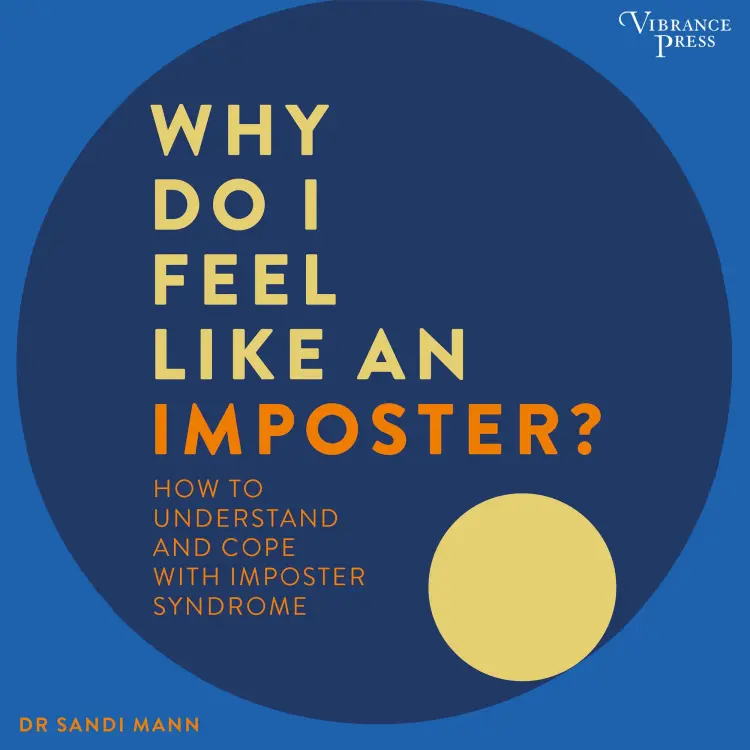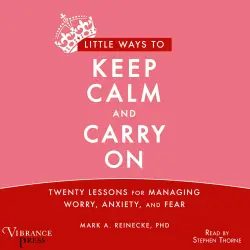
Why Do I Feel Like an Imposter? - How to Understand and Cope with Imposter Syndrome
Sandi Mann
Unabridged
4 uur 29 minuten
Opmerking: Er kunnen kosten verbonden zijn aan het afspelen van de audioboeken of hoorspelen op de respectievelijke platforms, bijv. Spotify. Lismio heeft geen invloed op welke luisterboeken en hoorspelen beschikbaar zijn op de service.
Sommige artikelen bevatten affiliate links (gemarkeerd met een sterretje *). Als je op deze links klikt en producten koopt, ontvangen we een kleine commissie zonder extra kosten voor jou. Uw steun helpt ons deze site draaiende te houden en nuttige inhoud te blijven maken. Hartelijk dank voor uw steun!
Van de uitgever
Many of us share a shameful little secret: deep down we feel like complete frauds and are convinced that our accomplishments are the result of luck rather than skill. This is a psychological phenomenon known as 'Imposter Syndrome'. This book examines the reasons why up to 70% of us are developing this syndrome-and what we can do about it.
All of us, at one point or another, have questioned our capabilities and competence. Maybe you've wondered how you got hired and, handed big job responsibilities? One recent article suggested that 70% of people "will experience at least one episode" of IS in their lives. Imposter Syndrome (also known as imposter phenomenon, fraud syndrome, or the imposter experience) is a concept describing individuals who are marked by an inability to internalize their accomplishments and a persistent fear of being exposed as a 'fraud'. The term was coined in 1978 by clinical psychologists Pauline R. Clance and Suzanne A. Imes. Despite external evidence of their competence, those exhibiting the syndrome remain convinced that they are frauds and do not deserve the success they have achieved. Proof of success is dismissed as luck, timing, or as a result of deceiving others into thinking they are more intelligent and competent than they believe themselves to be.
This book presents an accessible and engaging examination of IS and how it effects us, not just at work, but as teenagers, parents and beyond. Using interactive quizzes to help you identify if you suffer and offering tips and tools to overcome your insecurities, psychologist Dr Sandi Mann will draw on her experience not only as an academic, but also as a practitioner, to present a comprehensive guide to understanding and overcoming IS.
All of us, at one point or another, have questioned our capabilities and competence. Maybe you've wondered how you got hired and, handed big job responsibilities? One recent article suggested that 70% of people "will experience at least one episode" of IS in their lives. Imposter Syndrome (also known as imposter phenomenon, fraud syndrome, or the imposter experience) is a concept describing individuals who are marked by an inability to internalize their accomplishments and a persistent fear of being exposed as a 'fraud'. The term was coined in 1978 by clinical psychologists Pauline R. Clance and Suzanne A. Imes. Despite external evidence of their competence, those exhibiting the syndrome remain convinced that they are frauds and do not deserve the success they have achieved. Proof of success is dismissed as luck, timing, or as a result of deceiving others into thinking they are more intelligent and competent than they believe themselves to be.
This book presents an accessible and engaging examination of IS and how it effects us, not just at work, but as teenagers, parents and beyond. Using interactive quizzes to help you identify if you suffer and offering tips and tools to overcome your insecurities, psychologist Dr Sandi Mann will draw on her experience not only as an academic, but also as a practitioner, to present a comprehensive guide to understanding and overcoming IS.



















